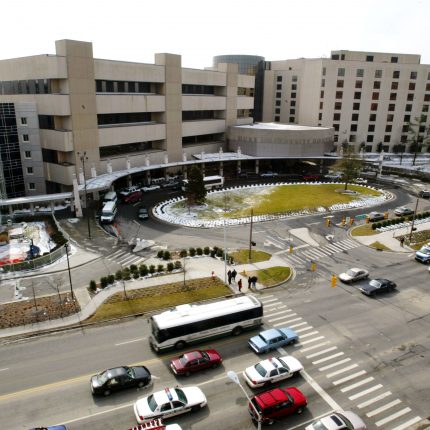In a recent episode of Carolina Newsmakers, Don Curtis interviewed Steve Lawler, the president and CEO of the North Carolina Health Care Association (NCHA). With over three decades in healthcare and eight years leading the NCHA, Lawler provided deep insights into the current state of healthcare in North Carolina, the challenges facing rural hospitals, and the ongoing efforts to address workforce shortages.
The Role of the North Carolina Health Care Association
The NCHA, formerly known as the North Carolina Hospital Association, has been a pivotal organization in the state’s healthcare sector for over a century. Its primary mission is to support North Carolina’s hospitals and health systems, ensuring they have the resources to care for their communities. Lawler emphasized that the NCHA is particularly focused on advocating for healthcare policies that benefit all residents, from urban centers to the most remote rural areas.
Challenges in Rural Healthcare
One of the key issues discussed was the unique challenges faced by rural hospitals in North Carolina. Rural areas, with their smaller and often aging populations, present distinct challenges compared to urban centers. Lawler pointed out that these hospitals are crucial to their communities, often serving as the largest employer and the primary provider of healthcare services. However, they are also the most vulnerable to financial instability.
Lawler highlighted the importance of Medicaid expansion, which has been a significant factor in stabilizing these rural healthcare providers. Despite this, he expressed concern about the ongoing viability of rural hospitals, stressing the need for intentional policy support and equitable funding to ensure their survival.
Workforce Shortages and Solutions
The conversation also touched on the critical issue of workforce shortages in the healthcare sector. The COVID-19 pandemic exacerbated existing shortages, as many healthcare workers retired or left the profession due to the immense pressures they faced. North Carolina, like many states, is grappling with a shortage of nurses, doctors, and other healthcare professionals, particularly in rural areas.
Lawler discussed several initiatives aimed at addressing these shortages, including partnerships with community colleges and universities to expand healthcare training programs. He also mentioned the NCHA’s efforts to engage high school students through targeted social media campaigns, encouraging them to consider careers in healthcare. By investing in the future workforce, the NCHA hopes to build a pipeline of skilled professionals ready to meet the state’s growing healthcare needs.
The Impact of Telemedicine
Telemedicine has become an increasingly important tool in North Carolina’s healthcare landscape, particularly in rural areas where access to specialized care is limited. Lawler noted that telemedicine allows smaller hospitals to connect their patients with specialists in larger urban centers, ensuring that even those in remote locations receive high-quality care. North Carolina has been a leader in telehealth, particularly in the field of behavioral health, and continues to innovate in this area.
Legislative Advocacy and the Future of Healthcare
Lawler also discussed the NCHA’s role in advocating for healthcare policies at both the state and federal levels. He highlighted the importance of the 340B program, which provides discounted pharmaceuticals to hospitals serving low-income and uninsured populations. The program is currently under scrutiny, and the NCHA is actively working to ensure its continuation.
At the state level, Lawler mentioned the significance of House Bill 76, which facilitated Medicaid expansion in North Carolina. He stressed the need for continued legislative support to ensure that the provisions of this bill are fully implemented and that rural hospitals receive the funding they need to thrive.
The Cost of Healthcare and Technological Advancements
Another topic of discussion was the rising cost of healthcare, particularly the expense associated with new medical technologies and pharmaceuticals. Lawler explained that while the cost of basic patient care has decreased over the years, the introduction of advanced technologies and treatments has driven overall healthcare costs higher. Despite these challenges, North Carolina’s healthcare system remains one of the most cost-effective in the nation, offering high-quality care at a relatively low cost.
Looking Ahead: Opportunities and Concerns
As he prepares to step down as president of the NCHA at the end of the year, Lawler reflected on the progress made during his tenure and the challenges that lie ahead. He expressed optimism about the future of healthcare in North Carolina, citing the state’s strong hospitals, innovative use of technology, and commitment to workforce development as key strengths.
However, Lawler also cautioned that the survival of rural hospitals will require ongoing attention and support. He emphasized that maintaining strong healthcare services in rural areas is not only vital for the health of these communities but also for their economic stability and identity.
Summary
Steve Lawler’s insights on Carolina Newsmakers highlight both the challenges and opportunities facing North Carolina’s healthcare system. From the importance of Medicaid expansion to the innovative use of telemedicine, the NCHA is at the forefront of efforts to ensure that all North Carolinians have access to high-quality healthcare. As the state continues to grow and evolve, the role of organizations like the NCHA will be crucial in navigating the complex healthcare landscape.





